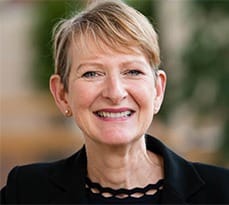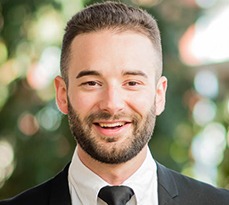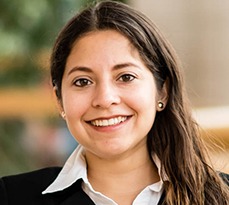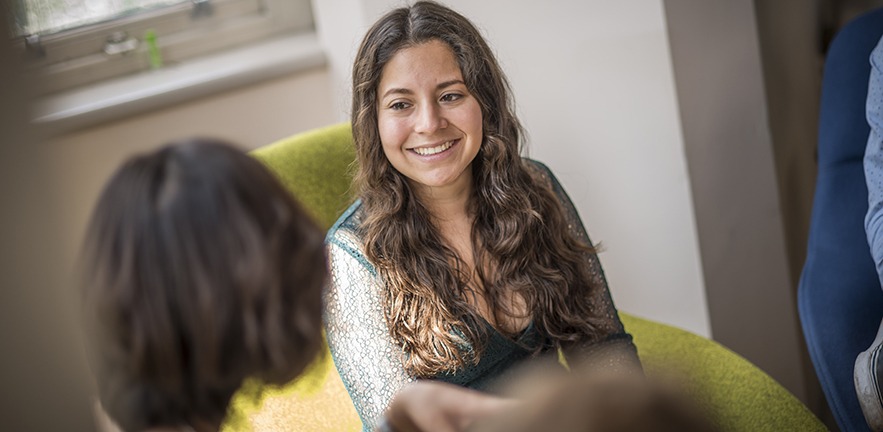Cambridge Judge Business School is joining with a network of alumni to champion one of the most upwardly mobile, yet little known groups within the business school community, first-generation graduates – the first in their family to invest in higher education at a university level.
An ‘active voice’ is needed to raise the profile of these high achievers, says alumnus Cambridge MBA Maria Zarate.
For the Cambridge MBA in particular, understanding the challenges for those applicants and students from a first-generation background and their pathways to success, is vital.

Not only will this make it easier to support others that will inevitably follow in their footsteps, but it will also build on and enrich the existing drive for diversity and inclusion in every sense, across the wider business school community.
“We are looking to build a class that reflects the rich diversity of the world we live in and to ensure that the transformational experience of the Cambridge MBA, in particular, is open to the brightest and best, whatever their background.” says Margaret O’ Neill, Head of MBA Careers.
Who are the ‘first-generation’ students?
Put simply, they are the first in their family to invest in higher education at a university level.
Often those from a more disadvantaged background are stepping into a highly selective business school environment without the parental guidance, the financial backing or the many connections and networks that are often necessary for success. It is a life-changing journey full of obstacles, as well as opportunities.

“I have used my background as a first-generation student to empower me. I haven’t had an existing network to support me and so I have had to make my own opportunities”, says alumnus James Bowers, now working as Business Engagement Lead, at the World Economic Forum, in Switzerland.
By sharing their collective experiences, Cambridge Judge alumni want first-generation students to know that there is support out there and that they do belong, in this highly competitive and selective learning environment.
“It is a group that transcends race, gender, nationality and everything. We all know what it’s like not to have a community to fall back on, when looking for jobs or when progressing our careers. We want to make sure we can help each other”, says Maria Zarate, now a Technical Manager for Google, based in Dublin, Ireland.
How does a first-generation background shape the MBA student experience?
“I think overall, it’s made me more independent, focused and driven. It has taught me to find my own networks and resources”, says Maria.

There was little choice. Growing up in an immigrant community in the United States, Maria pays tribute to her parents for their work ethic, and the value of education they instilled in her. “I was an obedient child”, she says laughing. Her parents however, “weren’t able to do more, as they simply didn’t know the language”.
Friends and teachers were generous with advice, but Maria found applying for university tough. First-generation students can also be too dependent on the ‘goodwill’ of others for crucial tasks like deciding on university options and future career choices, she says. It can leave them open to misdirection.
“You don’t know what you don’t know”, says Maria, “Especially, if you haven’t got the network of those who have been to university, or working in the job roles you want, to turn to for advice”.
Sadly, it didn’t get any easier. With her mother battling illness, Maria chose a university and then a job close to home and helped raise her younger sibling. Later on, she was worried that this career pathway might affect her decision to apply for an MBA.
“I didn’t have the brand names on my CV. I had only ever worked for a small company, so I needed to make sure my CV was strong and stood out, in spite of that.”
Despite her concerns, Maria developed the scope of her CV and went on to present a strong application when the time came to apply for her Cambridge MBA.
“I chose Cambridge Judge for its intrinsic values of both collaboration and diversity, as well as its established record of academic excellence.”
Looking back, James describes himself as a ‘geeky academic kid’, although he credits his parents as the deciding factor in setting him on a path to the Cambridge MBA, and his career move to the World Economic Forum.
It was a chance remark at school that led his family to act decisively, placing James onto a different career pathway during his early education.
“The fact that I was now surrounded by others who were also studying to go to university, was one of the biggest drivers for me”, he says.
Like other first-generation students from non-traditional backgrounds, James says he didn’t have, “access to any established parental peer network of those professional jobs”, which he believes makes getting that vital work experience to improve your CV so much easier.
“It’s something I have realised more and more, that these networks are completely invaluable, and they are not really given enough credit”.
Overcoming first-generation concerns
Sometimes considered a disadvantage rather than an achievement, not all first-generation students want to talk openly about their backgrounds. Just a handful of the 206 students from James and Maria’s 2018 cohort identified themselves as first-generation.
Maria and James believe the main reason there are so few first-generation students choosing to study for an MBA, is the prohibitive cost of programmes at global business schools, a major concern for them both. They describe the application process as the most ‘daunting’ experience of their career to date.
“If you are in a good job already, then the idea of taking more time out, with some associated career uncertainty, would be an even greater concern for someone from this background.”
James was lucky to qualify for some funding when he applied to study for his MBA.
There are a range of scholarships available to Cambridge MBA students, ranging from Cambridge Judge Business School bursaries and University of Cambridge and College scholarships, to external funding.
The first generation’s verdict
The Cambridge MBA programme has been transformative for both Maria and James, along with other first-generation MBA graduates. Maria says, “Afterall, we both now work for multi-national organisations making a global impact”.
During the Cambridge MBA Global Consulting Project (GCP) where both students selected projects at Google, James describes the, “Incredible opening and networking opportunities that we experienced and that we both benefited from afterwards”.
Of choosing to study for an MBA overall, he says: “It was a hundred per cent worth it. There is not one doubt in my mind that it wasn’t. I am now in a job role that I prefer and enjoy the challenges.”
Maria agrees, “I think the MBA Careers Team is amazing at CJBS. I got to know the team members early on and attended everything they offered, because I knew I needed to work towards a good position after graduating, especially with a loan to clear”.
“I have a large international network now, that I can always turn to when I am thinking about my future career progress. I think Cambridge Judge, the MBA, and Cambridge more widely, gave me that amazing global community”, she explains.
Building partnerships and widening conversations on social mobility is a continuing focus for the Cambridge MBA.
“It benefits the whole community to have diverse cultural, experiential and cognitive contributions to the class discussions that are so central to the Cambridge MBA experience”, says Margaret O’ Neill.
Margaret continues, “We are proud to partner with organisations like TalentoTotal in South America, whose mission is to support bright black and indigenous candidates into top business schools. It was a privilege to speak with TalentoTotal’s inspiring young scholars during my visit to Brazil earlier this year, and we look forward to welcoming more talented candidates from under-represented minorities around the world onto the Cambridge MBA”.
A final piece of advice for those from first-generation families considering their own steps towards an MBA,
“Take the risk. They should know they’ve made it this far because of their tenacity, their resourcefulness, and their work ethic. This is another step in the journey with enormous rewards”, says Maria.
“It will always be worthwhile”, James concludes.


